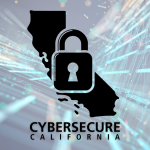As we conclude July, it’s an opportune time to reflect on the broader implications of cybersecurity beyond technical measures and threat mitigation. Cybersecurity isn’t just a technical challenge; it’s also a matter of ethics and governance. How we approach security can have profound implications on privacy, individual rights, and innovation. This week, let’s explore the ethical considerations in cybersecurity and the role of governance in maintaining this delicate balance.
The Intersection of Ethics, Privacy, and Security
Cybersecurity efforts are typically aimed at protecting assets, data, and systems from unauthorized access or harm. However, these efforts can sometimes clash with individual privacy rights or ethical standards, especially in the age of mass data collection and surveillance capabilities. Balancing these needs is a critical challenge.
Key Ethical Considerations in Cybersecurity
Data Privacy and Protection
Ethical Handling of Data: Organizations must consider the ethical implications of how they collect, store, and use data. This includes respecting user consent and ensuring data is used responsibly.
Privacy by Design: Incorporate privacy into the design of systems and policies, ensuring that it’s not an afterthought.
Transparency and Accountability
Openness: Be transparent about cybersecurity practices and how data is being protected or used.
Accountability: Ensure that there are mechanisms in place to hold individuals and organizations accountable for unethical behavior related to cybersecurity.
Balancing Security and Individual Rights
Proportionality: Security measures should be proportionate to the threat and not infringe unnecessarily on individual rights.
Ethical Hacking: Consider the ethics of practices like penetration testing or hacking back. While they can be valuable for security, they must be conducted ethically and legally.
The Role of Governance in Cybersecurity
Effective governance is crucial in ensuring that cybersecurity practices adhere to ethical standards and legal requirements:
Establishing Clear Policies
Develop and enforce clear policies that outline ethical guidelines and legal requirements for cybersecurity practices.
Regular Review and Adaptation
Regularly review and update governance policies to reflect new ethical challenges, technological changes, and legal developments.
Fostering an Ethical Culture
Promote a culture of ethics and integrity within the organization, emphasizing the importance of ethical behavior in all aspects of cybersecurity.
Striking the Right Balance
Balancing security needs with ethical considerations and privacy rights is not always straightforward. It requires a continuous effort to:
Stay Informed: Keep abreast of the latest developments in laws, technologies, and ethical standards related to cybersecurity.
Engage in Dialogue: Participate in broader conversations with stakeholders, industry groups, and policymakers about ethical cybersecurity practices.
Educate and Train: Ensure that all team members understand the ethical implications of their work and are trained in ethical decision-making.
As we wrap up July, let’s recognize that cybersecurity is not just a technical endeavor but also an ethical one. By embracing robust governance and ethical practices, organizations can ensure that their cybersecurity efforts protect not just their assets but also uphold the values of privacy, transparency, and accountability. Moving forward, let’s commit to being not just secure but also ethical guardians of the digital world.

